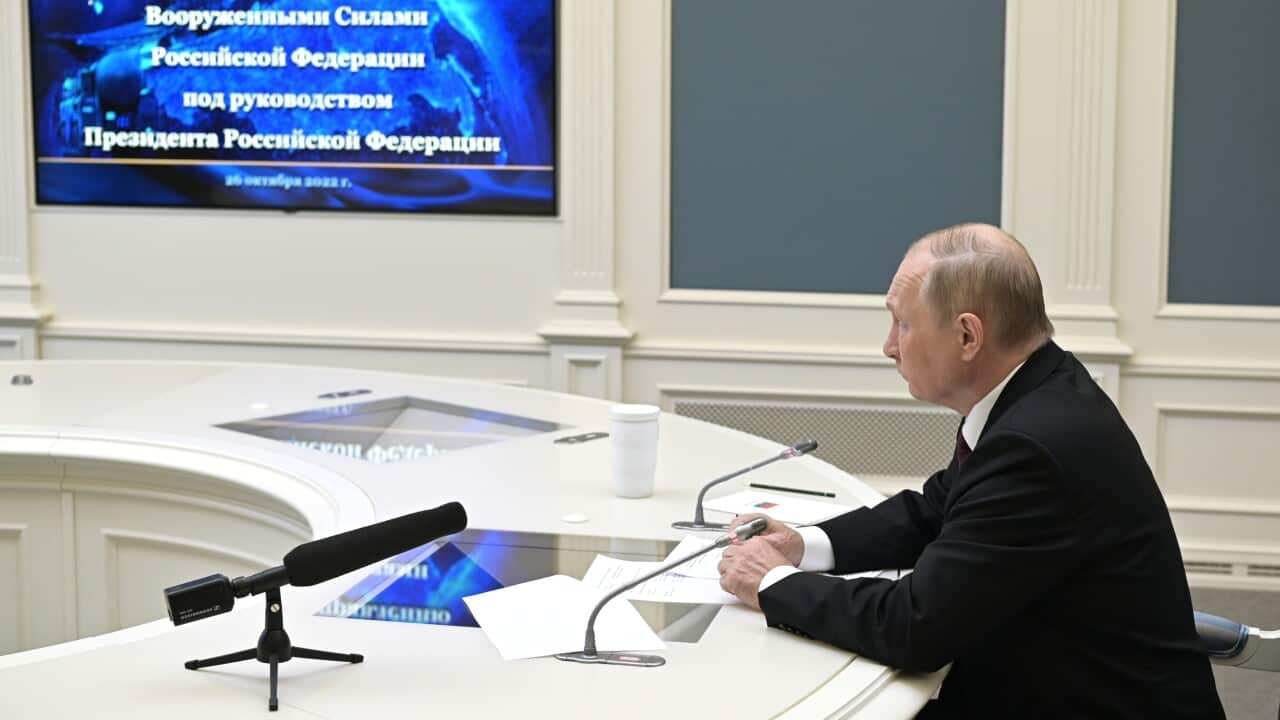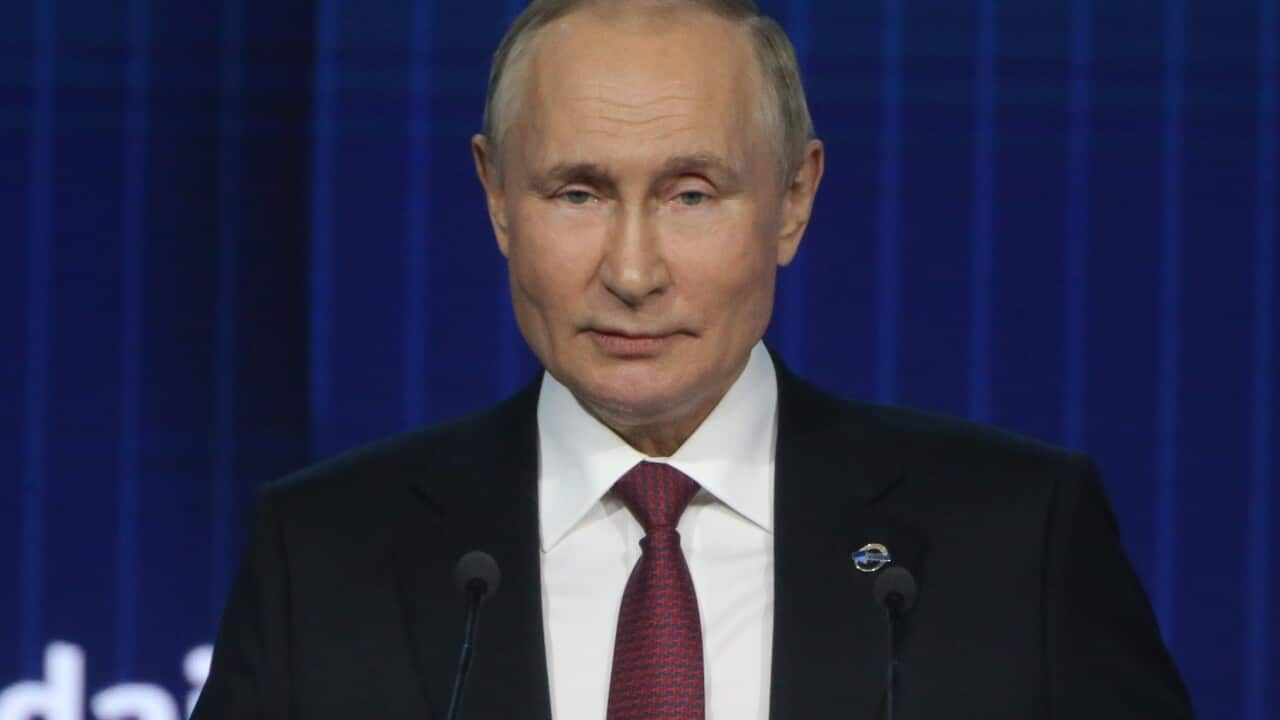Key Points
- Russia justified the change by saying it had received "sufficient" guarantees from Kyiv not to use the Black Sea grain corridor for military operations against Moscow.
- The revival of the agreement came just as Washington warned it was "increasingly concerned" that Moscow could use nuclear weapons in its campaign in Ukraine
- Russia said avoiding a nuclear clash between the world's nuclear powers was its first priority, but accused the West of "encouraging provocations with weapons of mass destruction".
Russia said on Wednesday it would resume its participation in a deal freeing up grain exports from war-torn Ukraine, reversing a move that world leaders had said threatened to exacerbate global hunger.
Moscow announced the sudden reversal after Turkey and the United Nations helped keep Ukrainian grain flowing for several days without a Russian role in inspections.
The Russian defence ministry justified the change by saying it had received "sufficient" guarantees from Kyiv not to use the Black Sea grain corridor for military operations against Russia.
Kyiv did not immediately comment on that, but has denied in the past using the agreed shipping corridor as cover for attacks.
"The Russian Federation considers that the guarantees received at the moment appear sufficient, and resumes the implementation of the agreement," a defence ministry statement said.
Russian army discussed nuclear use, report says
The revival of the agreement came just as Washington warned it was "increasingly concerned" that Moscow could use nuclear weapons in its campaign in Ukraine.
It follows a New York Times report saying citing senior US officials that high-ranking Russian military leaders had recently discussed when and how they might use a tactical nuclear weapon in Ukraine.
Russian President Vladimir Putin was not a part of these conversations, according to the NYT report.

A soldier searches for bodies in the rubble of a building hit by a Russian missile on 13 October, 2022 in Kharkiv oblast, Ukraine. Source: Getty / Carl Court/Getty Images
However, the fact that senior Russian military leaders were even having such discussions alarmed the administration of US President Joe Biden.
"Intelligence about the conversations was circulated inside the US government in mid-October," the NYT report suggested.
Moscow says West must stop 'encouraging provocations'
Russia said on Wednesday that avoiding a nuclear clash between the world's nuclear powers was its first priority but accused the West of "encouraging provocations with weapons of mass destruction".
Western capitals have said Moscow is behind a ramping up of nuclear rhetoric since Russia invaded Ukraine in February - most recently by repeatedly accusing Kyiv of planning to use a radioactive "dirty bomb" without offering evidence.
Kyiv has denied having any such plan.

Asl Tia, a cargo vessel carrying Ukrainian grain, sails under Fatih Mehmet Sultan bridge on Bosphorus to Marmara sea, in Istanbul, on 2 November 2022. Source: Getty / (Photo by OZAN KOSE/AFP via Getty Images)
"The most immediate task is to avoid any military clash of nuclear powers," the ministry said in a statement.
Moscow said it stood by a joint declaration issued together with the United States, China, Britain and France in January, affirming their joint responsibility for avoiding a nuclear war.
Grain flow 'will continue'
Russia suspended its involvement in the grain deal on Saturday, saying it could not guarantee safety for civilian ships crossing the Black Sea after an attack on its fleet.
Ukraine and Western countries called that a false pretext for "blackmail", using threats to the global food supply. But Russia's suspension failed to stop shipments, which resumed on Monday without Russian participation, in a program that was brokered by Turkey and the United Nations.
Zelenskyy thanks Turkey for grain deal
Ukrainian President Volodymyr Zelenskyy said he thanked Turkish counterpart Tayyip Erdogan on Wednesday for his "active participation" in helping preserve the grain deal.
In a statement on Telegram, Mr Zelenskyy said he had also discussed further steps to return prisoners, saying Turkey's support was important. Turkey has been involved in at least one high-profile swap of captives between Russia and Ukraine.
The grain deal originally reached three months ago, had alleviated a global food crisis by lifting a de facto Russian blockade on Ukraine, one of the world's biggest grain suppliers. The prospect that it could fall apart this week had revived fears of global hunger and pushed up prices.

President of Ukraine Volodymyr Zelenskyy partakes in a joint press conference with Prime Minister of the Czech Republic Petr Fiala, Kyiv, capital of Ukraine. Source: Getty / (Ruslan Kaniuka / Ukrinform/Future Publishing via Getty Images)
Future still in doubt, experts say
"This is clearly a positive development for grain users and consumers, which will please the food industry and provide some reassurances as prices should ease," said Mark Lynch, partner at Oghma Partners, a finance advisory firm for consumer industries.
"We do, however, envisage that some risk premium is likely to be sustained due to the fragile nature of the agreement and the ongoing war in Ukraine," Mr Lynch said.
Andrey Sizov, head of Russia-focused Sovecon agriculture consultancy, said Moscow's decision was "quite an unexpected turnaround" but the deal remained shaky given uncertainty about whether it would be extended past its 19 November expiry.
"The discussion around this topic will apparently continue," Mr Sizov said.
Mr Putin said on Wednesday that Russia reserved the right to withdraw from the grain pact if Ukraine violated its guarantees.
But, in a nod to Turkey's influence, as well as what he called its "neutrality" in Russia's conflict with Ukraine, Mr Putin said that if Moscow did pull out, it would not impede grain supplies from Ukraine to Turkey.
A senior Ukrainian official who declined to be identified told Reuters that Moscow's decision was mainly the result of Turkish pressure on Russia.
Ukrainian presidential adviser Mykhailo Podolyak said Moscow had miscalculated. "When you want to play blackmail, it is important not to outplay yourself," he said.
The United Nations said Secretary-General Antonio Guterres "warmly welcomes" the deal and would continue working towards its renewal.













